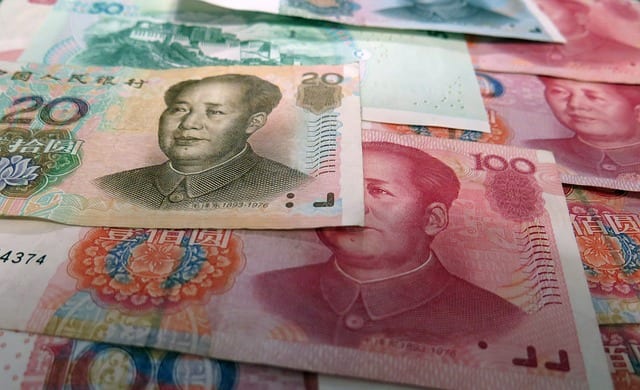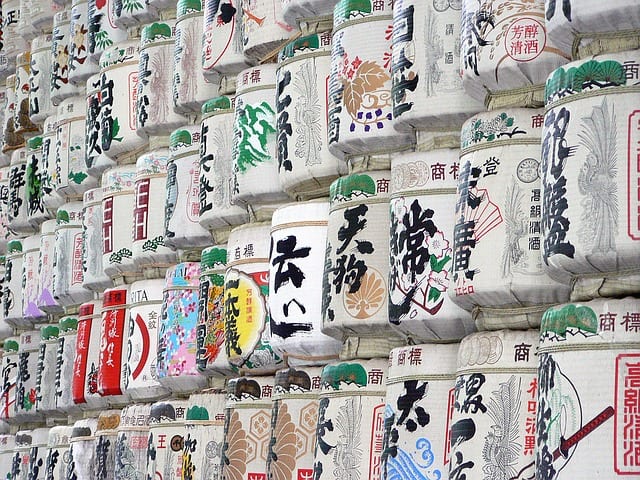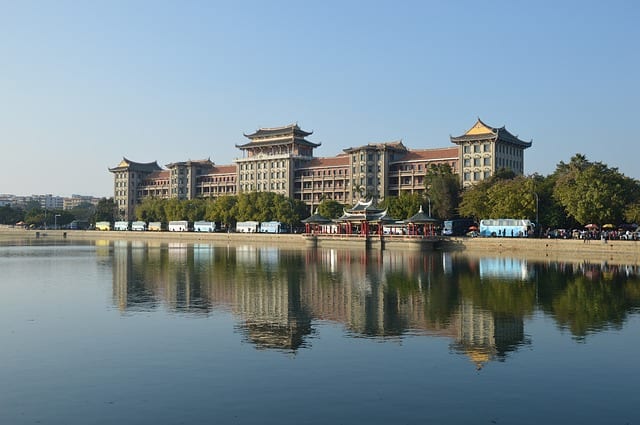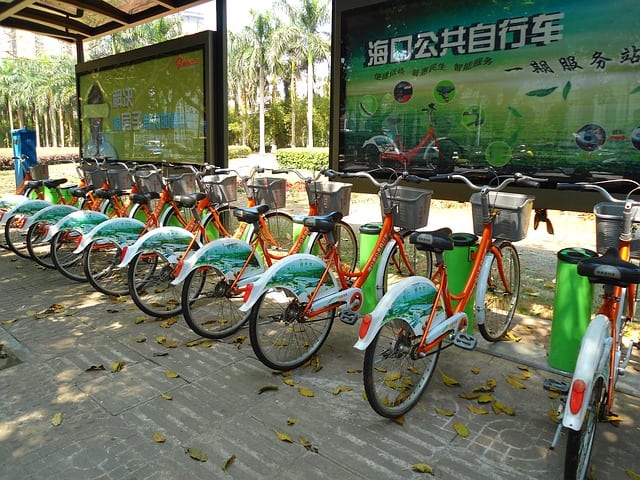How Much Does It Cost to Live in China?
According to China’s most recent National Census in 2010, the overwhelming population of over 1.3 billion is only made up of 600,000 expats. This 0.04% of the population has escalated over the past six years as international companies erect offices in the East and relocate workers. China is undoubtedly a daunting place to live due to the sheer mass of people, language barriers, and unique culture. However, there is an expat community in China, so what is drawing foreigners to the country?
The Legatum Institute, a London-based think tank, release their global Prosperity Index annually. The survey ranks the most prosperous countries in the world. Many assume prosperity is used in reference to the financial standing of a country and, while this is included, the Legatum Institute considers more factors in its ranking.
Ranking in 90th place this year (out of 149 countries) was China. This puts China in the bottom 40%, with its rankings for education and economy the only noticeably positive factors. However, China was in the bottom 20 positions in regards to personal freedom, social capital, and natural environment, resulting in a poor placing.
China has the second largest economy in the world, a variety of accommodation for expats, and good medical facilities, so it is understandable why many expatriates move there. But, how much does it really cost to live in China?
Economy
China once had a centrally-based economy but, after market reforms in 1978, this has shifted to a market-based economy. As a result of this, the country has experienced rapid economic and social development. Around 800 million people have been boosted out of poverty over the years due to the GDP growing an average of 10% a year which is the fastest sustained expansion of a country in history. Additionally, in 2015, China reached all the Millennium Development Goals; targets set worldwide to address extreme poverty, gender equality, education, and environmental sustainability.
Today, China is the world’s second largest economy and plays a vital role in global markets. Despite its influential and impressive growth, China still remains a developing country as its per capita income is minute compared to advanced countries. Although poverty in urban areas has been virtually eradicated, as of 2014, there were still 70.17 million living in rural areas.
 Although the growth has been positive, the speed at which it has been achieved has resulted in challenges to environmental sustainability, rapid urbanisation, and high inequality levels. To transition from a middle-income country to a high-income country China will need to adjust its policy. This is evident in the 13th Five-Year Plan set out by the Chinese government, which covers 2016 to 2020, and is set to see the GDP double from 2010 by the end of the period.
Although the growth has been positive, the speed at which it has been achieved has resulted in challenges to environmental sustainability, rapid urbanisation, and high inequality levels. To transition from a middle-income country to a high-income country China will need to adjust its policy. This is evident in the 13th Five-Year Plan set out by the Chinese government, which covers 2016 to 2020, and is set to see the GDP double from 2010 by the end of the period.
Currency
The official currency of China is the Renminbi (RMB or CNY). Expats may be confused when Chinese citizens use the phrases Yuan or Kuai; these are just informal words for money, like referring to British currency as sterling or pounds. One renminbi is equal to 100 fen or 10 jiao. There are seven RMB notes, split into denominations of 1, 2, 5, 10, 20, 50 and 100 RMB. Coins are 1 and 5 jiao, and 1 RMB (which is equal to 10 jiao).
Housing in China for Expats
Westerners will initially be shocked by the size of homes in China, used to larger properties. However, most expats end up adjusting after some creative furniture options and clever storage. The most affordable option for expats wishing to rent in China are apartments in the huge complexes dotted around different cities and urban areas. However, property agents in China can sometimes be artful with their explanations of homes. A ‘standard city apartment’ could mean a small flat with shared bathroom facilities or a spacious apartment with WiFi and marble floors. For this reason, it is best to shop around before settling on a home.
There are many factors that will affect the rental price of your new home in China, such as size, amenities, location, and whether the apartment is furnished. Understandably, the luxury apartments and villa complexes in cities such as Beijing, Shanghai, and Guangzhou come with a premium price tag.
In China, you can rent directly from a landlord, but this can be difficult if you don’t speak Mandarin. Most expats opt to go through an estate agent as most are bilingual and will be able to help you through the English and Chinese contracts that will be presented to you when you are in the final stages of securing a property. Homes can be taken off the market for a cash deposit and tenants will be expected to pay one month’s rent up front. Rent is expected to be paid a month in advance and the majority of expats set up a standing order or direct debit from their Chinese bank account to facilitate this.
If you can provide proof that you have lived in China for over a year, you are eligible to buy a property. Many expats go down this avenue if they are planning on settling in the country for a long period of time. However, it should be remembered that you must live in your home, and renting it out while you are overseas is not permitted. Harnessing the expertise of a lawyer or estate agent will make this process much easier.
Whether renting or buying, expats are required by law to register their new address at the local Public Service Bureau (police) within 24 hours of moving in.
Expat Healthcare in China
The Chinese healthcare system is hospital-centred, meaning expats will never see a GP in a clinic or practice. Foreigners can find the system challenging to understand as public healthcare is not offered to everyone and costs are not always covered, it depends upon eligibility. Bigger cities like Beijing and Shanghai are home to impressive western-style hospitals with English speaking staff. However, the medical facilities in remote areas of China leave much to be desired.
The public healthcare system in China is inconsistent and generally considered inferior. The city hospitals echo those of the UK, USA, and Australia, whereas expats visiting rural areas of China can be hours away from even the most basic public healthcare establishment. Expats should be prepared for extremely long waits and communication issues in public hospitals. Patients are also required to keep their own medical records whilst in hospital.
As a rule, the price of care in a private hospital is double that of a public facility. Private medical institutions can be found in larger cities such as Beijing, Shanghai, and Guangzhou. These hospitals have staff that were trained in the West and, therefore, they speak fantastic English.
In either case, expat insurance is a must for expatriates in China. This will help ensure you get the care you need, without having to worry about the financial implications.
Expat Education in China
Public education is compulsory for children aged between 6 and 15 in China, and it is free of charge. However, parents are expected to pay for necessities such as a school uniform and books. Parents should not be alarmed if their child is expected in school six days a week, this is normal in some areas. Classes run from 7am to around 4pm. Most children in rural China or living under the poverty line will end their education aged 15 as high school must be paid for.
It is a brave move, but some children and parents opt for public schools. The level of teaching and facilities is often stronger in the cities and urban areas, and such schools can be a great option for families who plan on remaining in China long-term. Lessons in Chinese public schools are taught solely in Mandarin, with little help in English for foreign students. Although this may seem daunting, it is a fantastic option for children wanting to pick up the language quickly and make friends.
Private schools are another popular option amongst expat families, particularly for those who do not have the budget to send their child to an international school. Many of the private schools in China offer an international curriculum in English as well as Mandarin.
Despite the offering of public and private educational facilities, independent schools still remain the top choice for families moving to China. Beijing, Shanghai, and Guangzhou have many international facilities to choose from and the majority follow the International Baccalaureate or the curriculum from the country they represent. Most schools, regardless of country, teach in English. It is best for parents to investigate international schooling for their children sooner rather than later. Waiting lists can often be long and entrance is very competitive. Like all international schools, fees can be very high.
For parents who cannot afford international or private schooling, and are not satisfied by the public offering, can home-school their children. It has grown in popularity amongst foreigners and locals alike. Many of the large cities have facilities for parents and students who have chosen the home-schooling path.
Cost of Transportation
With a population well over 1.3 billion, it is no surprise that there a multitude of transport options. Expats and locals alike have easy access to trams, trains, subways, buses, and taxis in the cities and towns. There are also domestic flights and long distance trains and buses for those wanting to travel across the country. Furthermore, there are over 430 million bicycles on the streets of China, with users benefiting from the purpose-built cycling infrastructure and bike rental facilities. Second hand bikes can be purchased for as little as 180 RMB (£21).
Expats who wish to drive in China will need to get a local license as International Driving Permits are not recognised. However, expats who have a valid driving license from their home country can sit a test and, after passing with 90% or over, will be presented with a Chinese license. All in, this costs around 200 RMB (approximately £23).
Foreigners wishing to drive in China must be aware that the roads are chaotic and etiquette is quite different to that in the west. Lanes are ignored, there is little concept of right-of-way, and the only noise you can hear is honking. Furthermore, parking is difficult and the roads are often gridlocked. If you are intent on having a car in China, the best option is to rent a vehicle with a driver, which costs upwards of 600 RMB (£46) per day.
Chinas national rail network covers the entire country and it is well maintained, with the China Railway Corporation constantly expanding and evolving services. The carriages of trains have different classes, which affect price, and many long-distance trains have sleeper carriages. Between the major cities of China run the famous high-speed trains; these are extremely comfortable and cut journey times considerably. Expats wanting to travel by train should book tickets through an agent to avoid long station queues and staff with limited English.
However, if your journey permits and you want to save yourself some money, hop on a bus. There are both regular and sleeper services that range from luxury to more rustic. Expats should be aware that some buses are poorly maintained, there are sometimes delays, and drivers understand little English. If you are intending on using buses in China, make sure you have a Mandarin phrase book handy to help you.
Similarly, taxi drivers rarely speak English in China, so most expats have their destination written in Chinese on a piece of paper. These journeys are reasonably priced, but do expect rates to increase at night, during peak hours, or in bad weather. Most metered taxis will charge 10 RMB (£1.17) as a flag-down fare for the first three kilometres, and 2 RMB (23 pence) for each kilometre up to 15 km. Distances further than 15 KM will cost the 10 RMB plus 3 RMB (35 pence) per km.
Jobs in China for Expats
If you are an English-speaking professional, there will be a role for you in China. Many expats in the country have relocated to fill senior roles in international companies, to teach English, or to start up their own business. Regardless of what work you are undertaking, a Chinese work permit is required. Luckily, this is often handled by the hiring company.
It used to be that senior and management roles in IT, HR, finance, and manufacturing were filled by expats. However, due to a shift in dynamics, highly skilled expats at any career level have opportunities in China and avenues in sales, banking, engineering, and marketing have opened.
The education sector is the country’s biggest employer of expats, with many now teaching a language (usually English). Being a teacher in China was once considered a low-paying job but now, newly-qualified teachers can earn anywhere between 10,000 RMB (£1,173) and 13,000 RMB (£1,525) per month and are usually promoted after a year.
Foreigners wanting to secure a job in China will have the most luck in expat-rich business cities such as Shanghai, Beijing, and Guangzhou. Most of the international companies use English day-to-day, but knowing basic Mandarin can be helpful, especially for career progression or higher-paid jobs.
Comparison to UK
The world’s largest database, Numbeo, has a vast selection of user contributed data in regards to China. Compared to the UK, the cost of living is less in China.
The tables below provide an over view of the differences in costs between China and the UK. Please note that all Chinese prices have been converted into British pounds.
| Groceries | UK Price (£) | Chinese Price (in £) | Cheaper Country? |
| Milk (1l) | £0.91 | £1.28 | UK |
| White bread (500g) | £0.95 | £1.74 | UK |
| Eggs (12) | £2.19 | £1.63 | China |
| Local Cheese (1kg) | £6.04 | £7.69 | UK |
| Banana (1kg) | £1.01 | £1.12 | UK |
| Water (1.5l) | £0.92 | £0.45 | China |
| Transport | UK Price (£) | Chinese Price (in £) | Cheaper Country? |
| Petrol (1l) | £1.13 | £0.71 | China |
| One-way ticket | £2.50 | £0.47 | China |
| Monthly pass | £130 | £23.46 | China |
| Taxi (1km) | £3.11 | £0.27 | China |
| Utilities (Monthly) | UK Price (£) | Chinese Price (in £) | Cheaper Country? |
| Electricity/Heating/Water for 85m2 apartment | £150.49 | £37.36 | China |
| 1 minute of PAYG talk time | £0.16 | £0.05 | China |
| Internet (10 Mbps, unlimited data, cable/ADSL) | £24.39 | £14.16 | China |
| Clothing | UK Price (£) | Chinese Price (in £) | Cheaper Country? |
| Jeans (Levi or similar) | £63.47 | £62.11 | China |
| Dress (chain store) | £31.65 | £27.62 | China |
| Nike running shoe | £64.20 | £78.47 | UK |
| Leather business shoes | £76.64 | £80.16 | UK |
| Eating Out | UK Price (£) | Chinese Price (in £) | Cheaper Country? |
| Fast food meal | £5.00 | £4.11 | China |
| Inexpensive restaurant | £12.00 | £3.52 | China |
| 3 course, mid-range | £50.00 | £22.29 | China |
| Cappuccino | £2.53 | £3.47 | UK |
| Coke/Pepsi | £1.14 | £0.42 | China |
| Imported beer | £3.50 | £2.93 | China |
